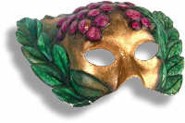
To save man from the morass of propaganda, in my opinion, is one of the chief aims of education. Education must enable one to sift and weigh evidence, to discern the true from the false, the real from the unreal, and the facts from the fiction
Martin Luther King (1957-1968)
The Maroon (Morehouse College Student Paper), 1947
The Anniversary too Important to Cancel
Recorded: August 8th, 2020
Transcript
It's been 75 years but survivors argue their memories of nuclear attacks still need to be heard. This week, Hiroshima and Nagasaki and the anniversary too important to cancel.
Hello, and welcome to the Travel Show coming to you this week from Hiroshima, around 900 kilometres southwest of Tokyo. Seventy Five years ago the world's first atomic bomb fell on this city killing tens of thousands of people in a blinding flash of light. And three days later, another bomb fell on Nagasaki. In this week's show we'll be meeting the survivors of those attacks and seeing how events designed to mark the 75th anniversary have fared during the global pandemic....
I've come to a city in Japan that's know all around the world, but it's known for just one event. the devastation and destruction caused by an American nuclear bomb dropped on this city 75 years ago this month during the final days of the second world war.
Today, though, much of Hiroshima looks like any other Japanese city. In fact, coronavirus aside, it's doing well.
Here we have the works of photographer Fuji Kaya. These show Hiroshima Peace Park as it is today.
This exhibition shows how the city has blossomed since.
Soon after the bomb was dropped, it was said that "no plants would grow here for the next 75 years". But Hiroshima has been miraculously rebuilt and is on its way to becoming lush with green.
Each August, the city commemorates the event, but as this year's big 75th anniversary approached, coronavirus has severely restricted what was possible.
This exhibition was a replacement for another exhibition that was cancelled due to Covid. Because of the pandemic the number of visitors is low.
So this is to remember the dead. Erh, this is in honour of those who died and families come here and offer prayers for the souls of those who died.
At Hiroshima's Peace Park an area that was once one of the city's busiest commercial hubs that was flattened by the blast has been made into a focus for its annual commemorations.
About 60 or 70 thousand people were killed on that day, and mostly because of the radiation and injuries, up to a hundred thousand people died by the end of 1945.
And what's been the effect on Hiroshima today?
It has scarred the city, people were terrified of radiation. And people stayed away from Hiroshima. People who were from here were discriminated against and it took the town a long time to rebuild but in its rebuilding one of its focuses was on trying to seek to eliminate nuclear weapons in the world. So. it's really always remained a central defining aspect of this city's experience and this city's focus
The testimony of survivor's here can reveal Japan's difficult relationship with memories of the Second World War.
When one of my children tried to get married. I was recognised as a `survivor` by the government and the other family strongly opposed and they broke up the couple. So my children have endured discrimination.
The number of survivors are dwindling every year and this year's ceremonies will be the last significant anniversary many will attend. But despite the limitations placed on proceedings because of the pandemic many are still eager to come out and tell their story.
Suddenly, there was a bright flash. Everyone ran outside but I was too slow to escape. That's how I got exposed to the bomb, 4 kilometres from the epicentre, inside the house. The house was destroyed but it didn't look like it had been bombed.
I didn't know how much time had passed but a while later I saw people fleeing. People who were exposed from the front had red skin all over their front side. The more time passed the worse their injuries looked.
And it's not just personal testimony which had a part to play in this year's event. Across the city a piano tuner was preparing his special piano that had been exposed to the blast 75 years ago for this year's scaled down ceremony in the Peace Park.
This was the first `survivor` piano that came into my possession. The piano first came to me in 1998 but I just left it in storage. Then on 6th August 2001, on the day of the bombing, at Peace Park, we had the idea to use this piano in a concert. Now, as my life's work, I take this piano all over the country to sow the seeds of peace.
On August 6th the Peace Park Ceremony went ahead but with a social distanced set up allowing just 10% of the 11,000 attendees that were originally anticipated.
Even though 75 years have passed I think it's a contemporary issue rather than something that just happened in the past. That's why I have to tell my story as long as I'm alive.
The countries that possess nuclear weapons must all think about the issue as a global problem.
Thoughts:
Notice how the bombs fell or were dropped - no suggestion that the US Air Force committed crimes against humanity. Nothing much about Nagasaki other than a quick mention of its name.
if you haven't done so, read John Pilger's Another Hiroshima is Coming — Unless We Stop It Now.
getfiles: The Anniversary too Important to Cancel
MP4 (Full HD Video), 215.62 mb- Top Page
- Splog!
- Articles
- Games
- Across The Table
- Add One More
- Anaconda
- Be A Monster!
- Black Hole (board game)
- Bombs Away!
- Catch!
- Catch-Caught-Caught!
- Centipede
- Charades
- Co-operative Quiz
- Crocodile
- Dice Stack
- Fast Food Tag
- Find My Number
- Find The Penny
- Football
- The Happy Game
- Line Up!
- Maze Challenge
- Natty Narration
- Nose Nose Nose
- One Step Forward!
- Pair Fluency Match 7 - Death Wish
- Pair Fluency Match 7 - Go Green!
- Parrot Parade
- Passport Control
- Reach The Top!
- Snake
- SockIt!
- Tickle Time
- What Cards
- Which One?
- Whose Shoe?
- World Cup Football 2018
- You, You, Me!
- Wake Up
- Packs
- Sheets
- Songs and Music
- Strips (songs and otherwise)
- Stories
- Techniques
- Video
- Environment
- Japan
- The 75th Anniversay of the bombing of Hiroshima
- The 75th Anniversay of the bombing of Nagasaki
- Cars in Japan
- Coronavirus Olympics
- Forest Bathing
- Japan and the Summit
- Japan and World War Two
- Multiculural Japan?
- Olympics Two Tokyos
- Plastic in Japan
- Return to Fukushima
- The Anniversary too Important to Cancel
- Typhoon Jebi
- Yayoi Kusama's Infinity
- Other
- This Week In History
- January, February, March
- April, May, June
- Sub Menu Item
- This Week in History: April 8-10
- This Week in History: April 12-15
- This Week in History: April 19-24
- This Week in History: April 24-26
- This Week in History: May 6-11
- This Week in History: May 11-14
- This Week in History: May 18-23
- This Week in History: May 25-31
- This Week in History: June 1-5
- This Week in History: June 11-14
- This Week in History: June 22-27
- This Week in History: June 15-21
- This Week in History: June 29 - July 5
- July, August, September
- This Week in History: July 6-12
- Sub Menu Item
- This Week in History: July 14-19
- This Week in History: July 27-31
- This Week in History: August 2- 6
- This Week in History: August 17-21
- This Week in History: August 27-30
- This Week in History: August 31 - September 6th
- This Week in History: September 7-13
- This Week in History: September 22-27
- This Week in History: September 14-20
- This Week in History: September 28 - October 4
- October, November, December
- Quizes
- Vocab



